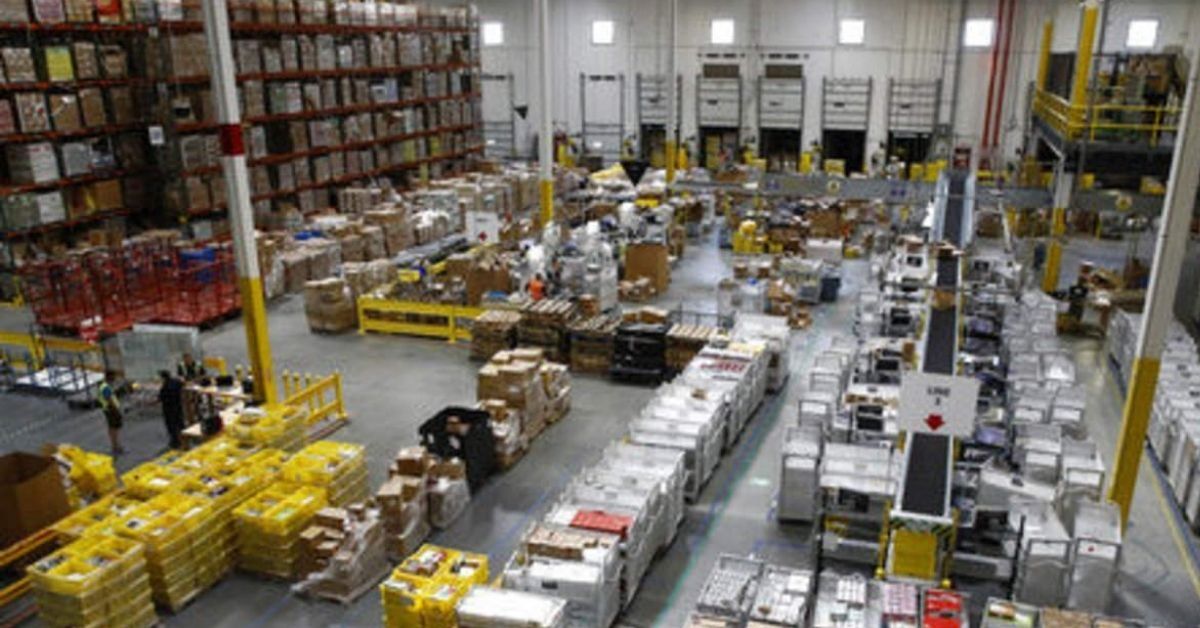Warehousing space demand from large ecommerce firms such as Amazon, Flipkart, Bigbasket and FirstCry have come down significantly this calendar due to an expected slowdown in consumer demand and a large base, recent studies show.
Ecommerce companies contributed to a mere 4% of total warehousing leasing in the first half of 2022, down from 23% in the first half of last year, data from property consultancy firm Colliers shows.
Another report by real estate data analytics company CRE Matrix said the top five ecommerce companies alone have seen an 83% drop in leasing in the first eight months of 2022 through August compared to 2021 when the segment saw 107% growth in space take up.
As per CRE Matrix data, Amazon leased 1.4 million square feet of warehousing space in the first half of 2022 while rival Flipkart leased only 0.11 million sq ft. BigBasket, now owned by the Tatas, leased 0.3 million sq ft. Other significant players like FirstCry and Blinkit (formerly Grofers) also have not leased large warehouse space so far this calendar year.
“It is a stabilisation period for ecommerce players as they have taken huge space post the outbreak of the pandemic in the last two years,” said Abhijit Malkani, CEO and country head of industrial and logistics property developer ESR India. “We are now seeing a lot of demand coming from retail clients and pharma clients.”
Flipkart and Amazon India, for example, doubled the size of its operations during the pandemic, adding more warehouses and workers to keep up with demand from homebound consumers who felt more comfortable buying things online.
“Ecommerce slowed down as these companies have taken large spaces in the last two years,” said Anshul Singhal, managing director of Welspun One Logistics Parks. “This segment remains resilient and will see a sharp bounce back in 2023.”
Warehousing demand from ecommerce players is expected to rebound strongly by the end of 2023, followed by retail and manufacturing.
“With the upcoming festive season, ecommerce companies are ramping up hiring as they anticipate increased sales across metro and non-metro areas,” said Vimal Nadar, senior director and head, research, India, at Colliers. “At the same time, India’s ecommerce market is set to grow manifold over the next five years. We see the growth of quick commerce percolating into non-metro cities too,” he added.
According to experts, the long-term picture looks promising for the logistics industry with government policies like National Logistics Policy (NLP), PM Gati Shakti national multi-modal connectivity initiative, an improved rail and road network, and a growing direct-to-consumer (D2C) business in the country.
The government has streamlined the process by the introduction of NLP but at the macro level we need to develop capabilities to capitalize the opportunities available to the industry by expediting ourself,” said Abhijit Verma, Managing Director, AA Holdings, a warehousing development and investment firm. Total leasing on Grade A industrial and warehousing facilities during H1 2022 in the top 5 cities was recorded at 10.8 million sq feet, a 7% increase year on year, mentioned Colliers.






